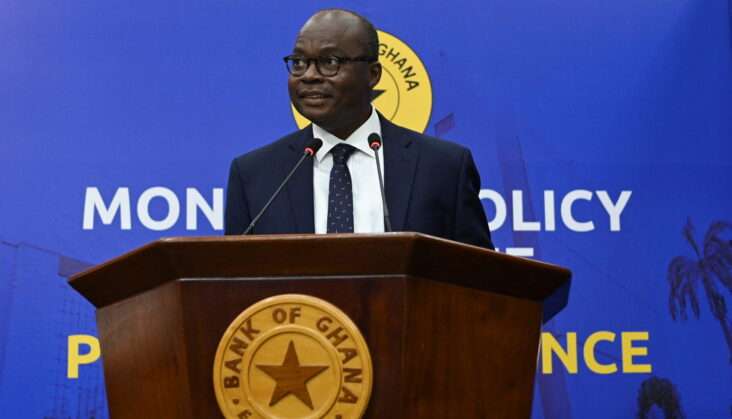The Bank of Ghana (BoG) has disclosed that Ghanaian banks profitability in 2023 indicates the sector’s rebound from the Domestic Debt Exchange Programme, which caused significant losses to the sector.
The BoG noted that the banking sector was particularly strong in 2023, as the sector recorded GHS8.3 billion in profit from a loss of GHS6.6 billion in December 2022.
The Bank of Ghana (BoG) recently unveiled a positive outlook for Ghana’s banking sector. The BoG said the growth outturns of key income lines contributed to the improved profit performance of the banks in 2023. “Net interest income grew by 41.5 percent in 2023, compared to a growth of 18.7 percent in 2022. Fees and commissions grew by 22.7 percent in 2023, relative to a growth of 25.2 percent in 2022,” BoG highlighted.
It said the increased growth in net interest income in December 2023 was on account of higher interest income on loans and investments from increased lending rates and interest rates on money market instruments.
The BoG identified several contributing factors to the enhanced profit performance. One major factor was the rise in interest income from loans and investments, driven by increased lending rates and interest rates on money market instruments. Additionally, a decline in interest expenses, attributed to reduced borrowings throughout the year, further bolstered net interest income.
“The moderation in interest expenses, which is attributed to the contraction in borrowings observed during the year, also contributed to the higher growth in net interest income in December 2023 relative to December 2022,” the report said.
Significant Decrease In Impairments
The report further disclosed a significant decrease in impairments on financial assets during 2023. This reduction played a crucial role in enhancing the sector’s overall profitability for the year, according to insights from the Bank of Ghana (BoG).
Total provisions and impairments experienced a remarkable contraction of 79.2 percent in December 2023, marking a stark contrast to the sharp increase witnessed in December 2022. The surge in impairments during the previous year was primarily attributed to substantial losses incurred from restructured bonds.
However, alongside this favorable development, operating expenses saw a notable uptick, with a growth rate of 34.9 percent in December 2023, compared to 27.2 percent in December 2022. This increase was mainly driven by higher growth in other operating expenses and staff costs, as highlighted by the BoG.
In a related assessment, Fitch Solutions, an international rating agency, shed light on the positive impact of the banking sector’s profitability in 2023, stating that it helped mitigate the effects of the Domestic Debt Exchange Programme (DDEP). The agency further attributed this profitability to capital-raising initiatives, encouraged by the BoG through the Ghana Stabilisation Fund (GSF), which are expected to continue supporting capitalization recovery efforts.
The losses incurred as a result of the DDEP were substantial, amounting to GHS 37.7 billion for Ghanaian banks. Among these, private and domestic banks bore a burden of GHS 19.9 billion, while their foreign-owned counterparts faced losses amounting to GHS 17.7 billion.
Despite the challenges posed by the DDEP, the banking sector’s ability to navigate through adversity, coupled with strategic measures implemented by regulatory authorities, underscores its resilience and potential for sustained growth in the future.
READ ALSO: Ghana Mourns the Loss of its Deputy Minister for Finance



















